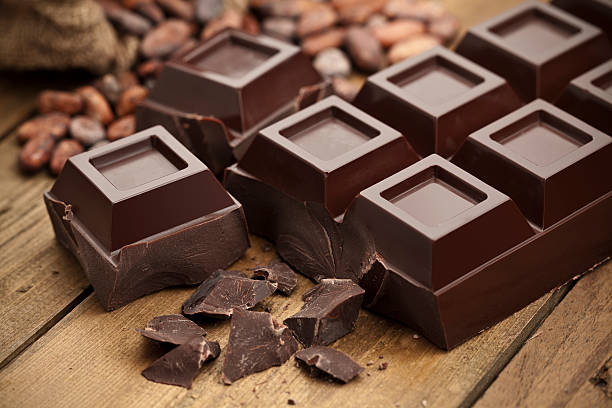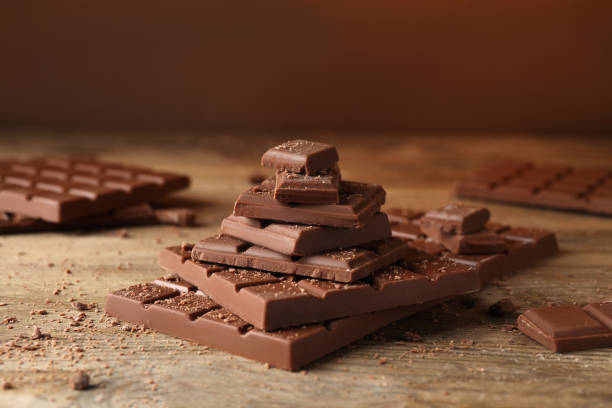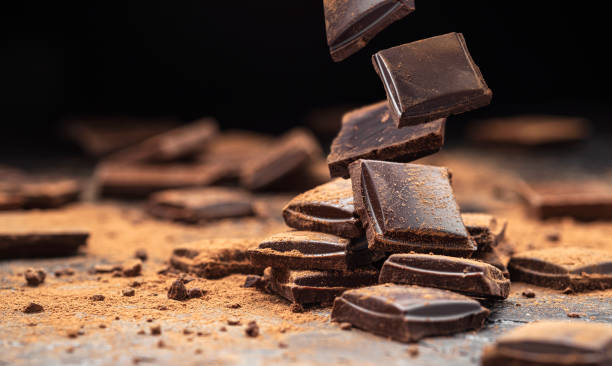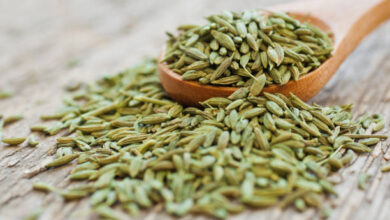Embrace the Health Benefits of Chocolate: Unveiling its Surprising Nutritional Value
Embrace the Health Benefits of Chocolate: Unveiling its Surprising Nutritional Value

Isn’t the velvety cascade of pure joy known as chocolate irresistible to anyone? Unfortunately, this decadent delight is often unfairly portrayed as a villain, taking the blame for breakouts and long-term health concerns. In this article, we will explore the health benefits of chocolate.
Are you ready to enjoy guilt-free indulgence? Get set, chocoholics, because we are about to reveal the unexpectedly healthy side of chocolate!

An abundance of antioxidant compounds
According to experts, when chocolate is carefully selected and consumed in moderation, it can serve as a delightful indulgence for both the palate and one’s overall health.
According to Sushma Ghag, a dietician specialist at Aster Healthcare, dark chocolate is rich in antioxidants, particularly flavonoids, which are predominantly found in cocoa. These antioxidants are linked to better heart health as they reduce blood pressure and improve vascular function.
Studies indicate that flavonoids can lower blood pressure, enhance blood circulation, reduce the likelihood of clot formation, and decrease the risk of stroke, coronary heart disease, and heart-related mortality. Additionally, they contribute to safeguarding the immune system against inflammation, which is frequently associated with various illnesses.
The flavonoids activate the endothelium, the arterial lining, to increase nitric oxide (NO) production. NO communicates with the arteries, prompting them to relax and dilate. This relaxation reduces blood flow resistance, leading to decreased blood pressure.
A study conducted in 2015 and published in the US-based National Library of Medicine, titled “High-cocoa polyphenol-rich chocolate improves blood pressure in patients with diabetes and hypertension,” examined the impact of chocolate consumption on individuals with Type 2 diabetes and high blood pressure. The research, involving 60 participants, found that those who consumed 25 grams of dark chocolate daily experienced notably lower blood pressure compared to those who consumed the same amount of milk chocolate.

Does it exhibit greater antioxidant activity than fruits?
A 2011 study published in the US-based Chemistry Central Journal titled Dark Chocolate Better than Acai Berry, blueberry, cranberry for Antioxidants, demonstrated that cocoa and dark chocolate possess higher antioxidant activity, polyphenols, and flavonoids compared to other fruits tested, such as blueberries and açai berries.
The research also revealed that the cocoa powder had a total flavonol content of 30.1 milligrams per gram, significantly surpassing the average of less than 10 milligrams per gram found in all other fruit powders tested.
Without a doubt, dark chocolate is superior to milk chocolate for valid reasons. Tamara Alizeh, a clinical dietician in Dubai, explains that milk chocolate typically consists of cocoa butter, sugar, milk, and small amounts of cacao. In comparison, dark chocolate offers greater nutritional advantages due to its lower sugar content when compared to milk chocolate.
Combating Diabetes
Dark chocolate holds numerous hidden benefits within its delicious composition. It can effectively combat high blood pressure due to two key ingredients: epicatechin, a potent compound that enhances cell strength, and polyphenols.
According to Alizeh, Epicatechin promotes the body’s utilization of insulin, offering potential benefits against diabetes. Additionally, the polyphenols improve insulin sensitivity, helping to regulate blood sugar levels. Furthermore, this heightened insulin sensitivity may even have the potential to postpone or prevent the onset of diabetes in the future.
According to a 2016 study published in the US-based academic journal Appetite, individuals who regularly consumed dark chocolate at least once a week exhibited a lower prevalence of diabetes. Moreover, this group also showed a reduced risk of developing diabetes four to five years later. The study, which involved 908 non-diabetic individuals and 45 people with diabetes. Revealed that those who consumed dark chocolate at irregular intervals faced twice the risk of developing diabetes compared to those. Who consumed it more frequently than once a week?

Cognitive advantages
It not only benefits the heart; it also enhances brain function.
According to Ghag, dark chocolate has been associated with various potential cognitive benefits. “The flavonoids found in cocoa have been linked to enhanced cognitive function. And may protect against age-related decline,” she explains. Furthermore, chocolate can activate neural activity in specific areas of the brain responsible for pleasure and reward. Helping alleviate stress and improve mood.
Cocoa, rich in flavonoids, has been linked to enhanced cognitive function and may provide defense against age-related decline….
Over the last ten years, extensive research has focused on the potential of dark chocolate to enhance neuroplasticity. The brain’s capacity to create synaptic connections. A 2018 research article titled “Dark Chocolate Consumption Reduces Stress and Inflammation,” published in the US-based National Library of Medicine, provided evidence supporting the positive effects of dark chocolate. Indicating its ability to improve mood, memory, and cognition.
In a 2018 study on dark chocolate featured in The Faseb Journal, based in the US. It was discovered that consuming chocolate could potentially enhance memory and learning. This is attributed to the accumulation of flavonoids in the areas responsible for these cognitive functions. Nonetheless, research in this area continues.

Key Factors to Consider When Consuming Dark Chocolate
As suggested by both Alizeh and Ghag, opt for dark chocolate containing a minimum of 70 percent cocoa content. Ghag advises to enjoy it in moderate servings to prevent excessive calorie consumption.
Caution: Dark chocolate is not a cure-all; it also contains calories and fats, so it’s important to be mindful of your consumption. Processing methods vary between brands, making it beneficial to conduct research before indulging in dark chocolate.





